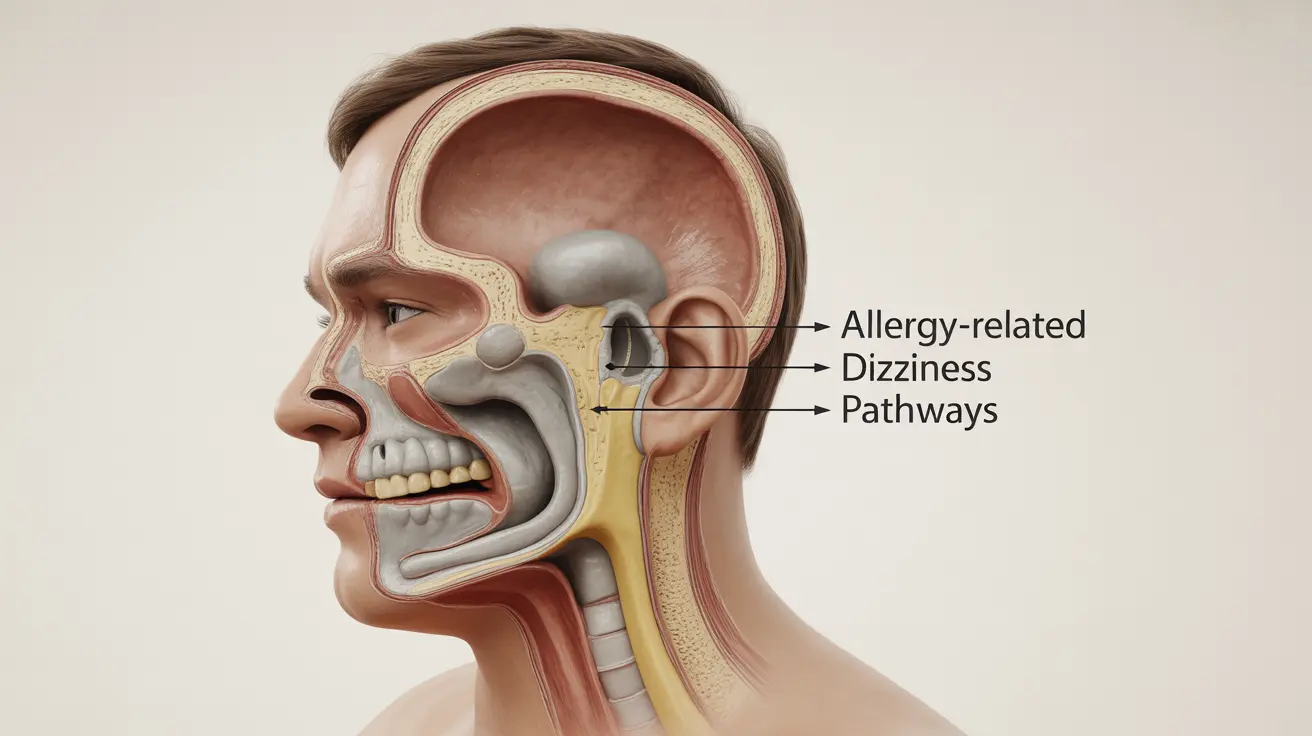If you've ever wondered "can allergies cause dizziness," the answer is yes. The connection between allergies and dizziness affects many people, particularly during peak allergy seasons. Understanding this relationship can help you better manage your symptoms and know when to seek medical attention.
Allergies can trigger dizziness through various mechanisms, primarily involving your sinuses and inner ear. This guide will explore how allergies lead to balance issues, what you can do about it, and when you should consult a healthcare provider.
How Allergies Affect Your Balance
Allergies can impact your sense of balance in several ways. When your body responds to allergens, it releases chemicals that can cause inflammation in your sinuses and inner ear, potentially leading to dizziness or vertigo-like symptoms.
Sinus Pressure and Dizziness
When allergies cause your sinuses to become inflamed, the resulting pressure can affect your equilibrium. This pressure can create a sensation of heaviness in your head and make you feel off-balance or lightheaded. The connection between your sinuses and inner ear means that sinus inflammation can directly impact your balance system.
Inner Ear Impact
Allergic reactions can affect your inner ear's vestibular system, which is responsible for maintaining balance. When allergens trigger inflammation in this area, you might experience:
- Spinning sensations
- Difficulty maintaining balance
- Light-headedness
- Disorientation
- Nausea
Common Symptoms and Recognition
Recognizing allergy-related dizziness is crucial for proper treatment. Key symptoms often include:
- Feeling off-balance or unsteady
- Room-spinning sensations
- Pressure in the head or ears
- Concurrent allergy symptoms (sneezing, congestion)
- Worsening symptoms during high pollen counts
Treatment Options
Several treatment approaches can help manage allergy-related dizziness:
Medication Options
Various medications can help control allergy symptoms and related dizziness:
- Antihistamines
- Decongestants
- Nasal corticosteroids
- Anti-inflammatory medications
Natural Remedies and Prevention
Several natural approaches can complement medical treatments:
- Nasal irrigation with saline solution
- Air purifiers in living spaces
- Regular cleaning to reduce allergen exposure
- Staying hydrated
- Using hypoallergenic bedding
When to Seek Medical Help
While mild dizziness from allergies often resolves with treatment, certain situations warrant medical attention:
- Severe or persistent dizziness
- Loss of balance affecting daily activities
- Hearing changes
- Severe headaches
- Symptoms that don't improve with over-the-counter treatments
Frequently Asked Questions
Can allergies cause dizziness or vertigo, and what does it feel like?
Yes, allergies can cause both dizziness and vertigo-like symptoms. It typically feels like a spinning sensation, light-headedness, or general unsteadiness. These symptoms often accompany other allergy symptoms like congestion or sneezing.
How do allergies lead to dizziness through inner ear or sinus problems?
Allergies can cause inflammation in the sinuses and inner ear, disrupting the vestibular system responsible for balance. This inflammation can create pressure changes and fluid buildup that affect your equilibrium.
What treatments are effective for allergy-related dizziness or vertigo?
Effective treatments include antihistamines, decongestants, nasal corticosteroids, and nasal irrigation. Combining medication with allergen avoidance strategies often provides the best relief.
When should I see a doctor if my dizziness is linked to allergies?
Consult a doctor if you experience severe or persistent dizziness, if symptoms significantly impact your daily activities, or if over-the-counter treatments aren't providing relief.
Can avoiding allergens completely prevent dizziness caused by allergies?
While complete prevention isn't always possible, reducing exposure to allergens can significantly decrease the likelihood and severity of allergy-related dizziness. This includes using air purifiers, keeping windows closed during high pollen times, and maintaining a clean living environment.




